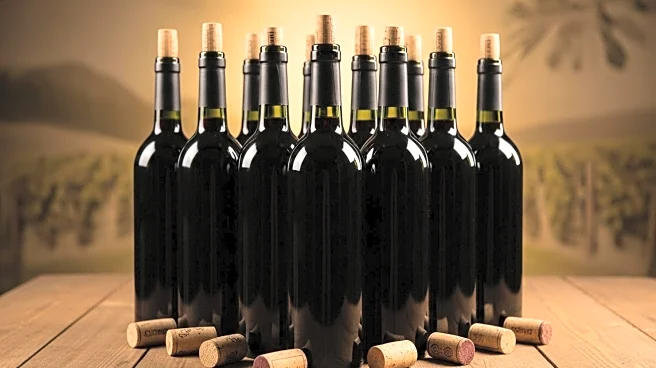What's Happening?
Cork, a crucial material for wine stoppers, has been exempted from President Trump's tariffs on European Union imports. This exemption is part of a framework trade agreement between the United States and the EU, recognizing cork as an 'unavailable natural product.' The exemption is significant for Portugal, the world's largest cork producer, which supplies about half of the global cork production. The U.S. is the second-largest market for Portuguese cork, importing $241 million worth in 2023, primarily for wine stoppers. The exemption follows lobbying efforts by Portuguese diplomats and the U.S.-based Natural Cork Council, which advocated for cork's tariff reprieve.
Why It's Important?
The exemption of cork from tariffs is crucial for U.S. winemakers who rely on cork for bottling. Cork's sustainable harvesting and biodegradability have led many winemakers to return to using it after experimenting with alternative closures. The exemption also highlights potential future tariff exemptions for other natural products, which could impact various industries. The decision comes amid broader uncertainty regarding the permanence of tariffs imposed by President Trump, as a U.S. appeals court recently ruled against his authority to impose such tariffs, although they remain in place pending an appeal.
What's Next?
The future of tariffs on EU imports remains uncertain as the Trump administration appeals the court ruling. If tariffs persist, cork's exemption may pave the way for other natural products to receive similar treatment. The U.S. Department of Commerce and the White House have not clarified whether other products will be exempted, leaving room for potential negotiations and adjustments in trade agreements.
Beyond the Headlines
Cork's exemption underscores the importance of sustainable and environmentally friendly practices in global trade. The cork industry has addressed past issues like cork taint, making it a preferred choice for aging wines. This development may encourage further exploration of sustainable materials in other industries, aligning with global environmental goals.









